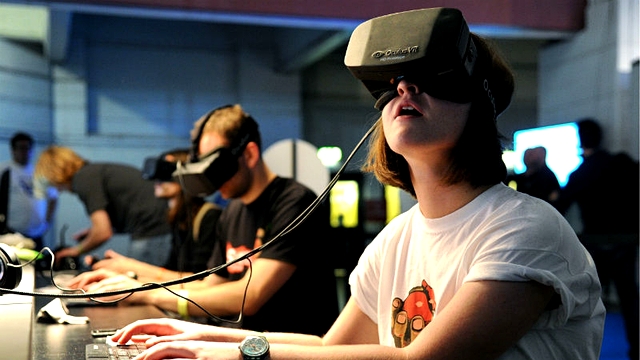Most consumers don't even know VR devices exist

It's easy to believe that consumers are paying attention to VR technology when the media loves to write so much about it. We read quite frequently about new headsets, new cool things they make possible, new players that join this space and the potential VR has to change the way we do certain things. It's virtually impossible to not stumble upon one of these stories these days.
Yet, according to a Kantar Worldpanel ComTech report, if you were to ask consumers on the street what they think about VR headsets most will tell you they don't even know such devices exist.
The research firm says that 51 percent of US and 54 percent of UK consumers are oblivious to the existence of VR headsets. That is despite the fact that there are VR headsets made by well-known consumer-centric companies, like Samsung, which have received plenty of coverage. Also, the purchase of Oculus VR by Facebook was highly publicized back in the day as well.
But it's to be expected if we look at who VR companies are targeting with their headsets. It's mostly tech enthusiasts who can afford to buy all the things needed to enjoy VR in their homes and want to keep up with the latest in technology.
If we look at Samsung's Gear VR, on top of buying it -- the headset alone costs $200 -- consumers also have to shell out for a Galaxy Note device -- which, in US, kicks off at $300 on a two year contract, or around $700 unlocked. The prohibitive price, coupled with hurdles associated with the early stages of development, makes it less likely for the average consumer to find a demo unit in retail stores or for a VR company to advertise its offering on TV.
It does not help that 30 percent of US and 24 percent of UK consumers do not see the utility in VR devices. Again, this is to be expected when we're talking about products which aren't yet fully developed, and which can be utterly useless in the wrong hands. Perhaps this won't change in the near future, not until other technologies evolve to the point where they go hand in hand with VR devices.
Of course, you can always count on the young to be open to embracing cool new technologies. The research firm says that in US it is the "youth segment" that is most interested in VR devices, while in UK it is young people under 16 who would buy them.
Of course, nothing's set in stone. VR backers, like Oculus VR and Samsung, are working towards raising awareness among consumers, which will certainly change how we all look at such devices. Oculus VR CTO John Carmack, speaking at GDC, said "When everything is ready, ads will be everywhere".